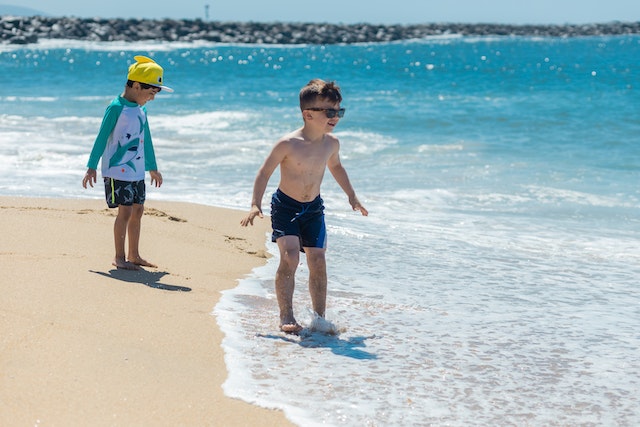Introduction:
As the temperatures rise, it becomes crucial to prioritize staying hydrated and preventing heat exhaustion. Dehydration and heat-related illnesses can pose serious health risks, but with the right knowledge and practices, you can protect yourself and stay cool during hot weather. In this guide, we will explore effective strategies for staying hydrated and preventing heat exhaustion.
1. Understand the Importance of Hydration:
Hydration is vital for maintaining optimal body function and regulating body temperature. When the weather is hot, your body sweats more to cool down, leading to increased fluid loss. By staying hydrated, you replenish the water your body needs to function properly and prevent dehydration.
2. Drink Plenty of Water:
The simplest and most effective way to stay hydrated is by drinking plenty of water throughout the day. Aim to consume at least 8 cups (64 ounces) of water daily, and increase your intake during hot weather or when engaging in physical activities.
3. Electrolyte Replacement:
Sweating not only leads to water loss but also depletes essential electrolytes like sodium, potassium, and magnesium. Consider consuming electrolyte-rich beverages or sports drinks to replenish these vital minerals. However, be cautious of added sugars and choose low-sugar or sugar-free options.
4. Eat Hydrating Foods:
Certain fruits and vegetables have high water content and can contribute to your overall hydration. Include hydrating foods like watermelon, cucumbers, strawberries, oranges, and lettuce in your diet to boost hydration levels.
5. Avoid Dehydrating Substances:
Limit your intake of dehydrating substances like caffeine and alcohol, as they can exacerbate dehydration. If you do consume them, balance them with additional water intake to offset their diuretic effects.
6. Monitor Urine Color:
A simple way to gauge your hydration level is by observing the color of your urine. Ideally, it should be pale yellow or straw-colored. Darker urine indicates dehydration, and you should increase your water intake.
7. Plan Your Activities:
Schedule outdoor activities during the cooler parts of the day, such as early morning or evening, when temperatures are lower. Minimize strenuous physical activities during peak heat hours to reduce the risk of heat exhaustion.
8. Dress Appropriately:
Wear lightweight, loose-fitting clothing made from breathable fabrics like cotton or linen. Opt for light colors that reflect sunlight rather than absorbing heat. Protect your head and face with a wide-brimmed hat or cap.
9. Seek Shade and Use Sun Protection:
When outdoors, seek shade under trees, canopies, or umbrellas to escape direct sunlight. Apply a broad-spectrum sunscreen with a high SPF to protect your skin from harmful UV rays. Reapply sunscreen every two hours, especially if you are sweating or swimming.
10. Take Regular Breaks:
Take regular breaks in cool, shaded areas to rest and cool down. This allows your body to recover from heat buildup and prevents overexertion.
11. Recognize the Signs of Heat Exhaustion:
Familiarize yourself with the signs of heat exhaustion, such as heavy sweating, fatigue, dizziness, headache, nausea, rapid heartbeat, and muscle cramps. If you experience these symptoms, move to a cool place, rest, and rehydrate. If symptoms worsen or persist, seek medical attention immediately.
Conclusion:
Staying hydrated and preventing heat exhaustion are essential for maintaining your well-being during hot weather. By following these guidelines, you can prioritize hydration, protect yourself from dehydration, and reduce the risk of heat-related illnesses. Remember to drink plenty of water, eat hydrating foods, avoid dehydrating substances, and take necessary precautions when spending time outdoors. Stay cool, stay hydrated, and enjoy the summer season safely!




